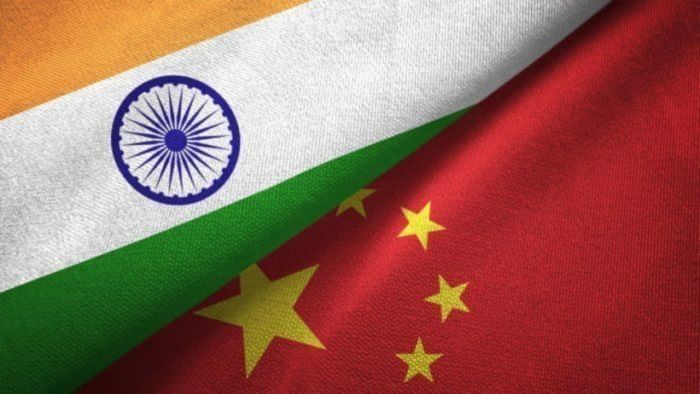
The latest round of negotiations between the senior military commanders of India and China to resolve the stand-off along the Line of Actual Control (LAC) in eastern Ladakh apparently failed to yield any breakthrough.
The 18th round of negotiations between the commanders of the Indian Army and the Chinese People’s Liberation Army (PLA) was held on the communist country’s side at the Chushul-Moldo border meeting point on the LAC in eastern Ladakh on Sunday. It, however, ended without the two sides agreeing on a joint press release, unlike the 16th and the 17th rounds of negotiations on July 18 and December 20 last year.
A source in New Delhi said that the Indian Army and the Chinese PLA had discussed proposals for a mutual withdrawal of frontline troops from Depsang and Demchok as well as other face-off points along the LAC in eastern Ladakh. They, however, could not reach an agreement during the meeting.
The Ministry of External Affairs (MEA) of the Government of India, however, issued a press release on its own in New Delhi on Monday. Mao Ning, the spokesperson of the Ministry of Foreign Affairs of the Chinese Government, responded to questions by the journalists during a routine briefing in Beijing.
The MEA stated in its press release in New Delhi that the two sides had “a frank and in-depth discussion on the resolution of the relevant issues along the LAC in the western sector”.
It indicated that the Indian Army had once again conveyed to the Chinese PLA that restoration of peace and tranquillity in the border areas was the prerequisite for progress in normalising the bilateral relations. In line with the guidance provided by Prime Minister Narendra Modi and Chinese President Xi Jinping and further to the meeting between External Affairs Minister S Jaishankar and his counterpart Qin Gang in March this year, the commanders of the Indian Army and the communist country’s PLA had “an exchange of views in an open and candid manner”, the MEA stated.
The press release issued in New Delhi referred to the agreement reached by the Indian Army and the Chinese PLA to maintain security and stability on the ground in the Western sector in the interim. “The two sides agreed to stay in close contact and maintain dialogue through military and diplomatic channels and work out a mutually acceptable resolution of the remaining issues at the earliest,” it added.
“According to the important common understanding of the leaders of both countries, the two sides held an in-depth exchange of views on expediting the resolution of relevant issues,” Mao, the spokesperson of the Chinese Government, said in Beijing.
The 18th round of negotiation took place four months after the 17th round. The delegation of the Indian Army was led by Lt Gen Rashim Bali, the commander of its XIV corps based in Leh. His counterpart and the chief of the South Xinjiang Military District of China led the delegation of the communist party’s PLA.
The latest round of negotiation between the commanders of the Indian Army and the Chinese PLA took place ahead of the Defence Minister of the communist country Li Shangfu’s visit to New Delhi to attend a meeting of the Shanghai Cooperation Organization (SCO).
Li may have a bilateral meeting with his host Defence Minister Rajnath Singh on the sideline of the SCO meeting, which will be held on April 27 and 28.
Jaishankar and the Chinese Foreign Minister Qin Gang are also expected to hold a bilateral meeting on the sideline of another SCO meet, which will be held in Goa on May 4 and 5 next.
Beijing in April-May 2020 made an aggressive move to unilaterally change the status quo along the LAC – the de facto boundary between China and India – in eastern Ladakh, by deploying a large number of troops of the Chinese PLA. The Indian Army too had to deploy additional troops to resist the Chinese PLA’s move to push the LAC westward. This resulted in a military stand-off.
Though protracted negotiations led to the mutual withdrawal of troops by both the Indian Army and the Chinese PLA from some of the face-off points along the LAC, like Galwan Valley, the northern and southern banks of Pangong Tso, Gogra Post and Hot Springs, the stand-off could not be resolved completely so far. The PLA troops deployed in Depsang, well inside the territory of India along the LAC with China, are still continuing to block the Indian Army’s access to Patrolling Points 10, 11, 12, 12A and 13. A face-off is also continuing in Demchok.
Beijing has of late been claiming that the mutual withdrawal of troops by the Chinese PLA and the Indian Army from Patrolling Point 15 (Gogra-Hotsprings area) in September 2022 marked the restoration of normalcy along the LAC in eastern Ladakh.
China’s claim appears to be an attempt to subtly build up pressure on India to accept the “new normal” in Depsang and Demchok areas.
